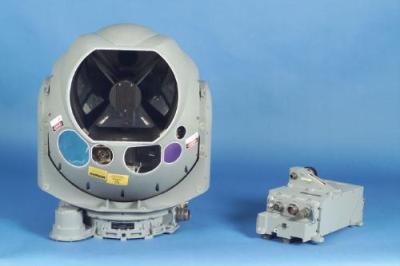A $10 million contract has been granted to Raytheon to offer advanced airborne data processing technology for the Missile Defense Agency (MDA). According to Tim Carey, who is the Vice President of Intelligence, Surveillance and Reconnaissance Systems in Raytheon Space and Airborne Systems, the company’s airborne processing technology provides automated, real-time tracking and detection in a single package.
The onboard processors would utilize the data available from the company’s Multi-Spectral Targeting System sensors for detecting and tracking possible missile strikes, which could prove to be a threat to the US, deployed troops and allies.
 RAYTHEON COMPANY MTS-B SENSOR Raytheon's MTS-B sensor and airborne processors are currently being examined by the Missile Defense Agency. Credit - Raytheon Company
RAYTHEON COMPANY MTS-B SENSOR Raytheon's MTS-B sensor and airborne processors are currently being examined by the Missile Defense Agency. Credit - Raytheon Company
The MDA’s program, created to examine and scrutinize the usefulness of airborne multispectral sensors to deliver fire quality tracks for the ballistic missile defense system, would be supported by the airborne processors. The wide range of MTS sensors developed by Raytheon is presently being evaluated by the MDA to enhance sensor coverage to support the Phased Adaptive Approach carried out by the administration.
The company’s mission processing responsibilities incorporate the development of software required to carry out target tracking, automated detection, transfer of information and on-board discrimination to the war fighters. The US forces would be able to utilize these tools, act on possible threats and attain long-term goals of the MDA.
The contract was awarded to Raytheon mainly due to the support it provided during the MDA flight test, which was carried out in the month of March. The MTS-B sensor observed missiles which were threat representative and showed the MDA its capacity to detect and track missiles using automated control from long ranges.